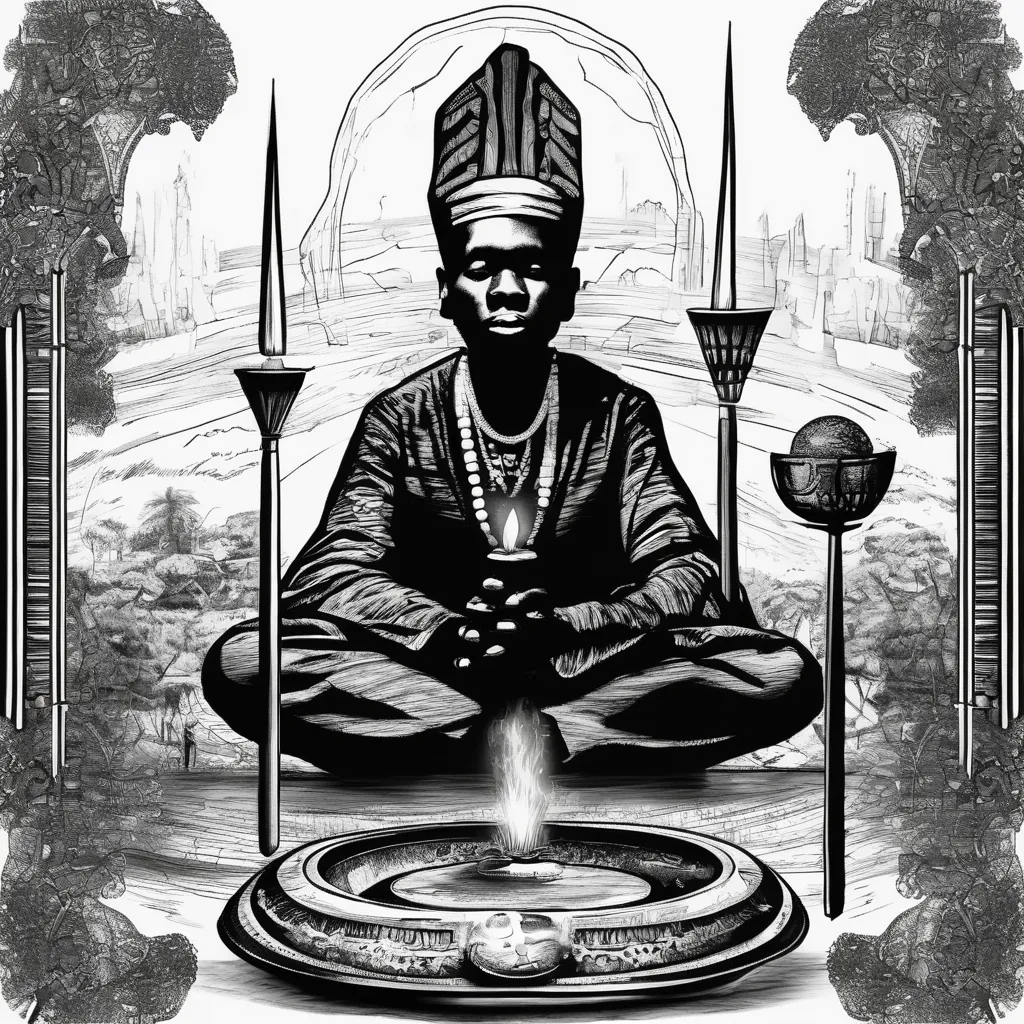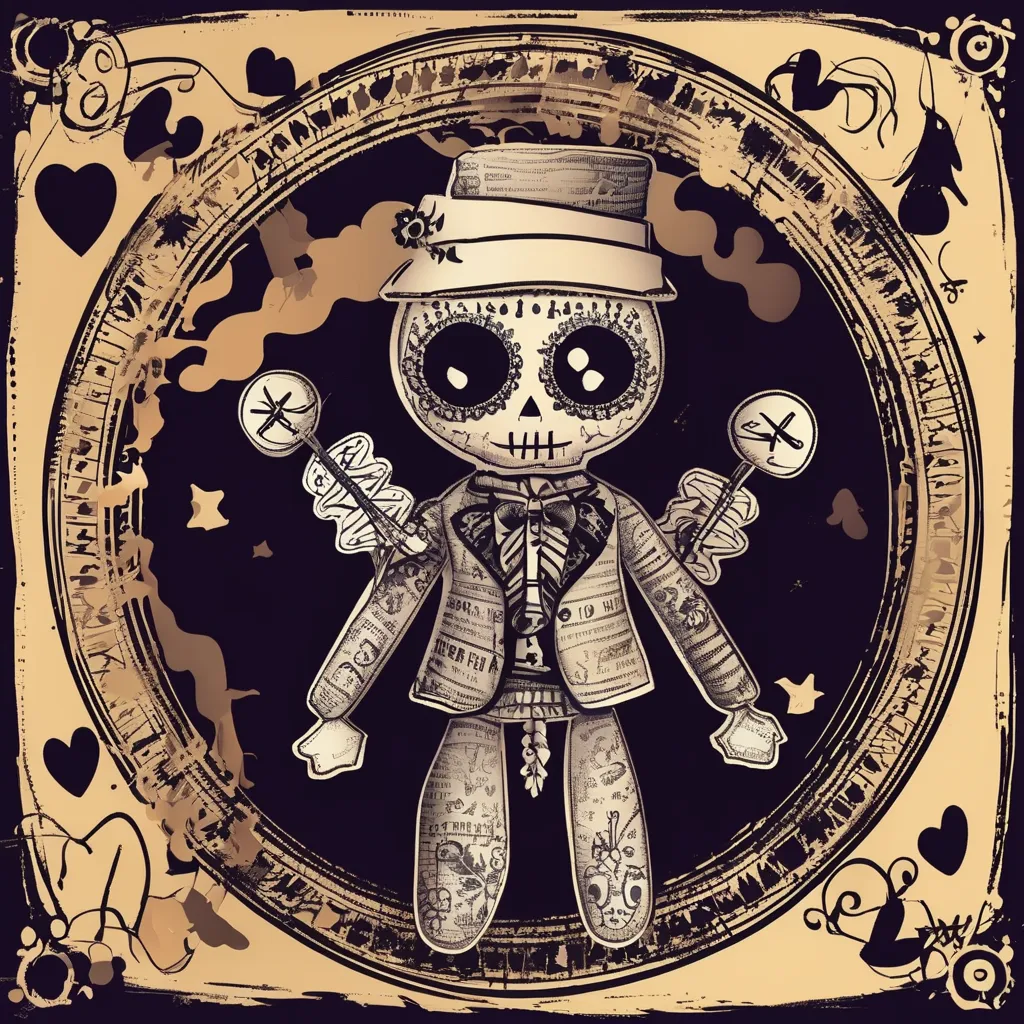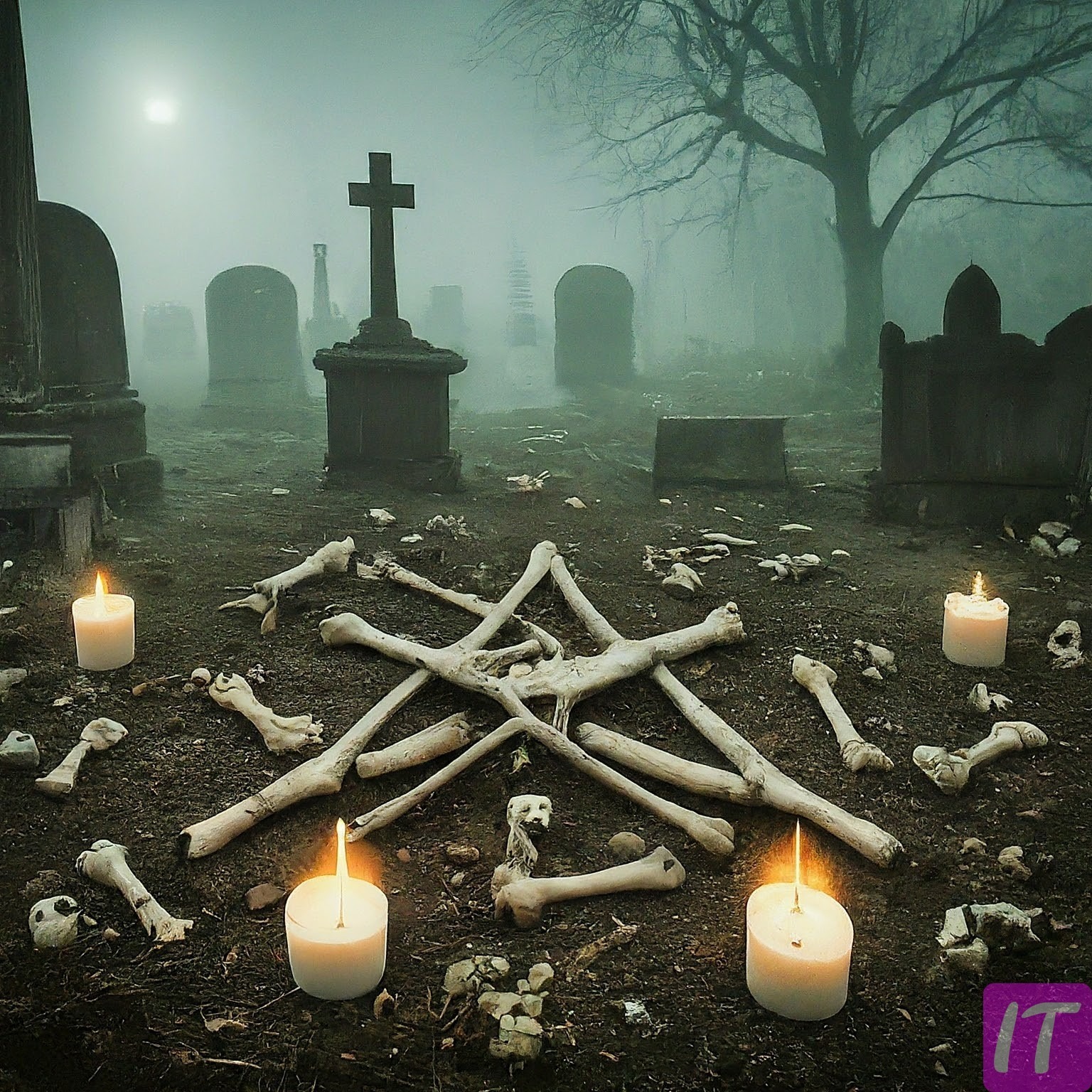What Is Obeah?
Introduction to Obeah: An Ancient Spiritual Practice
Obeah is an ancient spiritual practice that has intrigued and fascinated people for centuries. Rooted deeply in African traditions, this mystic belief system was brought to the Caribbean by enslaved Africans and has since evolved into a unique cultural phenomenon. Known for its rich rituals and profound connections to nature and the elements, Obeah embodies a blend of spirituality, healing, and magic. Despite its elusive nature, exploring Obeah can provide profound insights into the cultural and spiritual fabric of the Caribbean.
The Origins of Obeah: A Historical Perspective
The roots of Obeah trace back to West Africa, particularly among the Akan, Igbo, and Yoruba people, who practiced various forms of folk magic and spirituality. These traditions were carried across the Atlantic during the transatlantic slave trade. Upon arrival in the Caribbean, these beliefs merged with those of other African groups, as well as indigenous and European elements, creating the hybrid practice of Obeah. This fusion reflected a form of resistance and resilience, offering enslaved Africans a means to maintain their cultural identity and spiritual connections in the face of relentless oppression.
Cultural Influences on Obeah
Obeah has been shaped by a plethora of cultural influences over the centuries. The interaction with Taino, European, and Hindu practices, particularly in places like Jamaica and Trinidad, has enriched Obeah’s rituals and beliefs. Spanish and Portuguese colonists introduced elements of Catholicism, while Indian indentured laborers brought aspects of Hinduism into the mix. This cultural melting pot created a unique spiritual practice that incorporates a wide range of symbols, deities, and rituals, reflecting the diversity of the Caribbean’s cultural heritage.
The Core Beliefs of Obeah Practitioners
At the heart of Obeah lies a belief in the interconnectedness of all things. Practitioners hold that the natural and spiritual worlds are intricately linked, and that energies from both realms can be harnessed to influence various aspects of life. Obeah emphasizes the power of spirits, ancestors, and natural elements, serving as intermediaries between humans and higher spiritual forces. This belief system is deeply personal and adaptable, allowing practitioners to tailor their rituals and practices to their individual needs and circumstances.
Different Types of Obeah Rituals
Obeah rituals are as diverse as the practitioners themselves, ranging from simple daily affirmations to complex ceremonies involving multiple participants and intricate setups. Some rituals aim to protect individuals from harm or evil spirits, while others seek to attract love, prosperity, or health. Healing rituals are particularly significant, often involving herbal remedies, spiritual cleansings, and invocations to ancestral spirits. Each ritual carries its own unique symbolism and significance, deeply rooted in the practitioner’s personal spiritual journey.
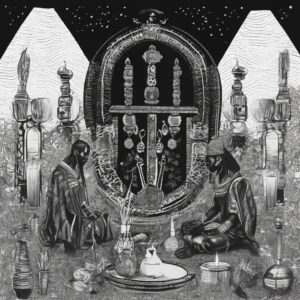
The Role of Obeah Healers and Practitioners
Within the realm of Obeah, healers and practitioners play crucial roles as conduits between the natural and spiritual worlds. These individuals possess extensive knowledge of herbs, rituals, and spiritual practices, enabling them to assist others in addressing a wide range of physical, emotional, and spiritual issues. Obeah healers are often highly respected within their communities, serving not only as spiritual guides but also as advisors, mediators, and protectors. Their expertise and wisdom are passed down through generations, maintaining the continuity and evolution of Obeah traditions.
How Obeah is Viewed in Modern Society
In contemporary society, Obeah evokes a range of reactions, from deep respect and reverence to fear and misunderstanding. Despite its historical significance and cultural importance, Obeah has often been stigmatized and misrepresented, particularly by colonial authorities and mainstream religions. However, recent years have seen a resurgence of interest in Obeah as a vital part of Caribbean culture and history. Modern practitioners are increasingly open about their beliefs, seeking to demystify and destigmatize this ancient practice.
Common Misconceptions About Obeah
Obeah is frequently surrounded by myths and misconceptions, often portrayed as dark, malevolent witchcraft in popular culture. This portrayal overlooks the fact that Obeah, at its core, is a deeply spiritual and healing practice. Many people erroneously believe that Obeah is exclusively used for harmful purposes, ignoring its extensive tradition of benevolent rituals aimed at promoting health, protection, and well-being. Clarifying these misconceptions is essential for fostering a more accurate and respectful understanding of Obeah.
The Symbolism Behind Obeah Artifacts
Obeah artifacts, such as talismans, charms, and altars, are imbued with profound symbolic meanings. These objects often serve as physical representations of spiritual energy and intentions. For example, a protective amulet might be crafted using specific herbs, stones, and symbols believed to ward off negative influences. Altars, elaborately decorated with offerings and symbolic items, act as focal points for rituals and spiritual communication. Understanding the symbolism behind these artifacts provides insight into the intricate and meaningful world of Obeah.
Obeah’s Connection to Nature and the Elements
Nature plays a pivotal role in Obeah, with practitioners drawing on the energies of plants, animals, and natural elements in their rituals. Each element—earth, water, fire, and air—has distinct properties and influences that can be harnessed for various purposes. For instance, water is often used for purification and healing, while fire symbolizes transformation and power. This deep connection to nature reflects the belief in the harmony and balance between the physical and spiritual realms, emphasizing the importance of respecting and preserving the natural world.
Understanding the Spiritual Tools Used in Obeah
Obeah practitioners use a variety of spiritual tools to facilitate their rituals and connect with higher powers. These tools may include candles, herbs, oils, and incenses, each chosen for their specific properties and spiritual significance. Divination tools like cards, shells, and bones are used to gain insights and guidance from the spiritual realm. These tools act as extensions of the practitioner’s intention, helping to focus and channel their spiritual energy effectively. Mastering the use of these tools is a vital aspect of becoming proficient in Obeah practices.
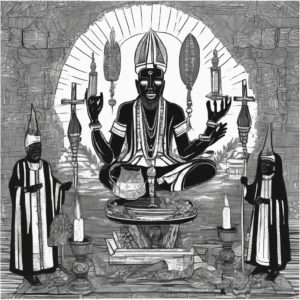
The Spiritual Benefits of Obeah Practices
Engaging in Obeah practices can yield numerous spiritual benefits, from personal empowerment and protection to healing and transformation. Many practitioners report a heightened sense of connection to their ancestors and the natural world, which can provide comfort, guidance, and a deeper understanding of their place in the universe. Obeah rituals can also foster emotional and psychological well-being, helping individuals to release negative energies and embrace positive change. These spiritual benefits underscore the holistic and transformative power of Obeah.
Obeah’s Influence on Caribbean Culture
Obeah has left an indelible mark on Caribbean culture, influencing various aspects of daily life, music, art, and folklore. Stories of Obeah practitioners and their mystical abilities are woven into the fabric of Caribbean oral traditions, contributing to the region’s rich narrative heritage. The reverence for nature and ancestral spirits embodied in Obeah is reflected in Caribbean cultural expressions, underscoring the deep connection between spirituality and community. This influence extends beyond religious practices, shaping the cultural identity of the Caribbean people.
The Ethical Considerations of Practicing Obeah
Like any spiritual practice, Obeah involves ethical considerations that guide practitioners in their use of spiritual power. These principles emphasize respect for others, the natural world, and the balance between positive and negative energies. Practitioners are encouraged to use their abilities responsibly, avoiding harm and seeking the greater good. Ethical Obeah also involves a deep respect for the traditions and knowledge passed down through generations, maintaining the integrity and authenticity of the practice.
How Obeah Differentiates from Other Afro-Caribbean Religions
While Obeah shares common roots with other Afro-Caribbean religions such as Vodou and Santería, it is distinct in its focus and practices. Obeah is generally more individualized and less formalized than these religions, lacking a centralized structure or pantheon of deities. It emphasizes personal spiritual work and direct interactions with spirits and ancestors. This flexibility allows Obeah practitioners to adapt their practices to their unique needs and circumstances, creating a highly personalized spiritual journey.
Personal Stories from Obeah Practitioners
Hearing firsthand accounts from Obeah practitioners provides invaluable insights into the practice and its impact on individuals’ lives. These personal stories often highlight the transformative power of Obeah, illustrating how it can provide healing, guidance, and empowerment. Practitioners may share experiences of overcoming personal challenges, connecting with ancestors, or discovering their own spiritual gifts through Obeah. These narratives help to humanize and demystify the practice, offering a glimpse into its profound and personal significance.
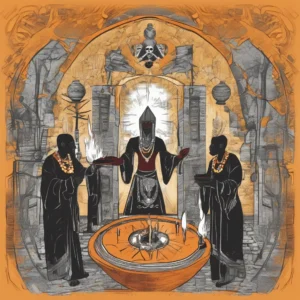
How to Begin Learning About Obeah
For those interested in exploring Obeah, the journey begins with a commitment to learning and respect. Studying the historical and cultural context of Obeah is essential, as is connecting with knowledgeable practitioners and communities. Engaging with authentic sources, such as books, documentaries, and workshops, can provide a solid foundation. Additionally, personal practice, such as meditation and nature rituals, can help to develop a deeper connection to the spiritual aspects of Obeah. Approaching this journey with an open mind and heart is key to understanding and appreciating the richness of Obeah.
The Controversial History of Obeah and Colonialism
The history of Obeah is inextricably linked with the legacy of colonialism, which sought to suppress and demonize African spiritual practices. Colonial authorities often persecuted Obeah practitioners, viewing them as threats to social order and control. Anti-Obeah laws were enacted throughout the Caribbean, criminalizing the practice and driving it underground. Despite these efforts, Obeah endured and evolved, serving as a powerful symbol of resistance and resilience. This controversial history highlights the enduring struggle for cultural and spiritual autonomy in the face of oppression.
Legal Status of Obeah Around the World
The legal status of Obeah varies significantly around the world, reflecting divergent societal attitudes towards the practice. In some Caribbean countries, laws against Obeah remain on the books, though they are rarely enforced. In other regions, Obeah is recognized as a legitimate spiritual practice and protected under religious freedom legislation. The varying legal frameworks underscore the ongoing tension between traditional spiritual practices and modern legal systems. Advocates for Obeah often seek to challenge and overturn outdated laws, promoting greater acceptance and understanding of this ancient practice.
Future Perspectives on the Evolution of Obeah
As Obeah continues to evolve, its future prospects are shaped by both challenges and opportunities. Modernization and globalization pose threats to the preservation of traditional knowledge and practices. However, there is also a growing movement to revitalize and celebrate Obeah as an integral part of Caribbean heritage. The increased interest in alternative spiritualities and the recognition of indigenous knowledge systems offer hope for the continued relevance and adaptation of Obeah. By honoring its roots and embracing its dynamic nature, Obeah is poised to remain a vibrant and meaningful spiritual practice for generations to come.

Conclusion
Obeah is a complex and multifaceted spiritual practice, rich with history, cultural significance, and personal meaning. Its journey from West Africa to the Caribbean reflects a story of resilience, survival, and continual evolution. By understanding the core beliefs, rituals, and ethical considerations of Obeah, we can gain a deeper appreciation for its place in the spiritual and cultural landscape of the Caribbean. As interest in Obeah grows, it remains a profound testament to the enduring power of ancient wisdom and the human spirit’s quest for connection and understanding.
